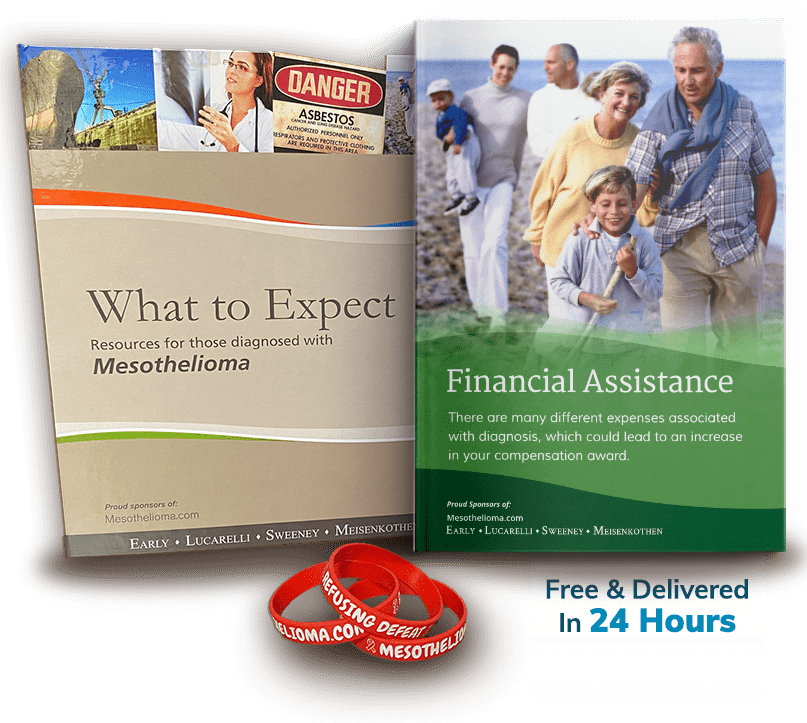Testicular mesothelioma develops in the tunica vaginalis testis, the membrane lining the testes. This is the rarest of the four main types of mesothelioma, accounting for less than 1% of all mesothelioma diagnoses with only about 300 reported cases. Due to its rarity, how the disease progresses and life expectancy are still unclear.
01. Prognosis
What is the Prognosis for Testicular Mesothelioma?
Testicular mesothelioma has generally shown a better prognosis than other forms of the disease because it is more localized, and several documented instances of mesothelioma of the tunica vaginalis have beenbenign。Researchers have found the median survival is typically around 20 – 23 months, though some patients have lived years after being diagnosed. This is better than other forms of mesothelioma with alife expectancyof only about one year to 21 months.
Several factors can influence an individual patient’s prognosis, including:
- Mesothelioma cell type
- Tumor size andstaging
- Age of the patient
As with other types of mesothelioma, the cancerous cells show an aggressive growth rate and the potential to metastasize quickly. Additionally, there is a high risk of recurrence. One study found the recurrence rate was at least 53%, with at least 60% occurring within two years after successful treatment. For those with recurrent testicular mesothelioma, research suggests an average life expectancy of about 14 months.
02. Symptoms
睾丸间皮瘤万博专业版Symptoms
Similar to pleural mesothelioma and peritoneal mesothelioma, most testicular mesothelioma patients display nonspecific symptoms easily attributed to other conditions and diseases, like an inguinal hernia or other testicular cancers. Doctors have also seen asymptomatic cases with diagnosis stemming from a routine physical examination.
Sometimes, testicular mesothelioma tumors may be secondary in nature and have been linked toperitoneal mesotheliomametastasis in a few cases. In these instances, patients may experience more symptoms impacting the abdomen, like abdominal pain or swelling. Researchers have also noted that some of the common symptoms, like prolonged hydrocele, may also help lead to a testicular mesothelioma diagnosis.
03. Diagnosis
How Is Testicular Mesothelioma Diagnosed?
After a patient presents with symptoms or if a testicle irregularity is found upon examination, a doctor will orderimage testing, likely an ultrasound. A testicular mesothelioma ultrasound is a non-invasive, low-risk procedure that uses sound waves to create a picture of the scrotum. The ultrasound may show any swelling like hydrocele or masses that may have developed. Studies have suggested that about 56% of testicular mesothelioma patients present with a hydrocele, while about 33% present some solid mass in the testes.
Following an ultrasound, a doctor will likely take a blood test or assay to help determine the cause of symptoms and hopefully offer early detection of any cancer. Blood tests will be most helpful to rule out more common types of testicular cancer. For mesothelioma specifically, there arebiomarkersin the blood that doctors can look for to help detect the asbestos cancer early, including SMRP, however, these have not been studied in testicular mesothelioma.
Though a blood test can suggest a mesothelioma diagnosis, the only definitive way to diagnose the cancer is through atissue biopsy。活检通常会的最后一步diagnostic process, and will determine cell type and staging. This will then offer insight into a patient’s prognosis. Additional tests may be performed to better determine metastasis to the lymph nodes or other parts of the body and secondary tumors.
04. Stages
睾丸间皮瘤万博专业版Stages
Understanding thestage of canceris an important aspect in determining a patient’s prognosis and developing an appropriate treatment plan. Since this form of mesothelioma is so rare, doctors do not have enough data to develop a proper staging system. Instead, doctors will use general mesothelioma characteristics to determine how advanced a patient’s case is and how it might be expected to progress.
Stage 1 or stage 2 testicular mesothelioma indicate a localized tumor. With limited or no cancer growth, patients will have more treatment options, like surgical resection. As the cancer becomes more advanced and spreads to the lymph nodes and other organs, treatment options are more limited and prognosis worsens.
05. Treatment
睾丸间皮瘤万博专业版Treatment
Testicular mesothelioma has most commonly been treated with a multimodal approach that combinessurgery,chemotherapyandradiation therapy。Whether or not to pursue aggressive mesothelioma treatment will be largely determined by if the disease is still localized or has metastasized. Treatment options may be more limited as the cancer becomes more advanced.
Researchers have found that an optimal treatment for localized disease consists of a radical inguinal orchiectomy, a surgical procedure that removes one or both testicles and the spermatic cord. This surgery is considered the standard of care for all testis cancers, though there are some testis-sparing options available for some patients. Since studies have shown testicular mesothelioma often only affects one testicle when localized, a less aggressive surgery may be an option for some patients. However, one study found the recurrence rate dropped by nearly 25% for those patients who opted for the more radical surgery.
Chemotherapy alone or combined with radiation therapy is another option for patients with advanced disease, and may sometimes be utilized in combination with surgery. Since it is so rare, researchers remain unsure of the best chemotherapy options for testicular mesothelioma. In the documented case reports, most patients were treated with the standard of care, Alimta® and cisplatin. Chemotherapy in combination with radiation may also be a good option for patients who experience recurrent testicular mesothelioma. Ultimately, patients will need to seek professional medical advice for their specific case.








